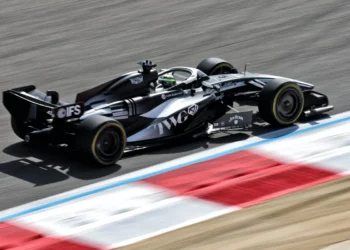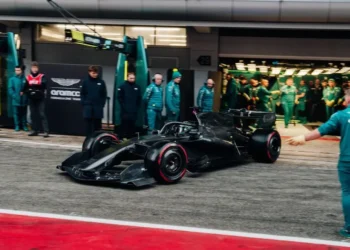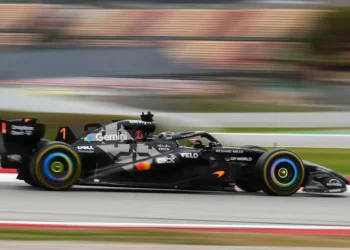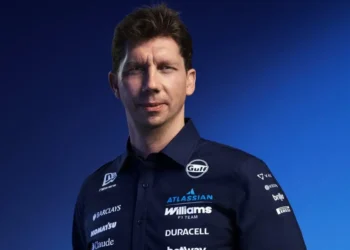Former Alpine F1 team boss Otmar Szafnauer has ripped into the French outfit’s management, revealing the chaotic behind-the-scenes power struggles that led to his abrupt exit and the loss of rising star Oscar Piastri. Speaking candidly on the High Performance Podcast, Szafnauer didn’t hold back, lifting the lid on the dysfunctionality that plagued his time at the team.
Szafnauer, who was appointed in February 2022, was axed during the 2023 Belgian Grand Prix weekend as Alpine’s performances continued to falter. The fallout from the botched Oscar Piastri contract saga, where the talented driver was snatched up by McLaren, was another blow that ultimately led to his ousting. The team blamed a difference in vision, but Szafnauer insists that was just the surface of a deeper issue.
“There were a few things that went wrong at Alpine,” Szafnauer confessed. “One of the major problems was a lack of control. HR, finance, communications, marketing—none of these departments reported to me. All these crucial areas were controlled from France. Before I took the job, I was told everything would be under my command, but when I arrived, it was a completely different story.”
Szafnauer described the internal setup as a nightmare, explaining how he quickly realized the reality he was walking into was not what had been promised. “I thought I could manage it, but soon enough, I knew it was problematic,” he admitted.
The Piastri saga, which saw the young talent depart for McLaren due to contract mishandling, was a flashpoint for Szafnauer’s troubles. The FIA’s Contract Recognition Board (CRB) ruled against Alpine, a ruling Szafnauer insists had nothing to do with his leadership. “I started in March, and the contract mishap happened before my arrival. The documents were never filed correctly, and the contract was never signed. It was beyond my control,” he stressed.
To Szafnauer’s surprise, he became the public face of the fiasco. “They put my picture on the press release even though I had nothing to do with it,” he claimed. “It was an attempt to deflect blame. The communications team—who didn’t even report to me—used my image. When I confronted the person responsible, someone I had worked with at Force India, she admitted she was instructed to do it.”
He pointed to this incident as evidence of a broader issue within Alpine: “There were people who didn’t have the team’s best interests at heart. They were more interested in protecting their own power base than focusing on performance. They weren’t working with me, they were working against me.”
Szafnauer compared the toxic atmosphere at Alpine to his early days at Ford. “There was an old saying that Ford Motor Company didn’t make cars; it made careers. People cared more about their own advancement than the company’s success,” he explained. “In F1, it’s not supposed to be like that, but when you bring in individuals from the corporate world who don’t prioritize performance, you get the kind of dysfunction I experienced at Alpine.”
He suggested that with Renault’s influence over Alpine’s F1 operations, the focus had shifted away from on-track success. “You have people from the Renault Group being put in charge who don’t care about racing; they care about their careers. And that’s when bad decisions get made,” Szafnauer concluded.
With such explosive revelations, it’s clear that Alpine’s internal conflicts run deeper than the Piastri incident. As the team undergoes more leadership changes and with Flavio Briatore’s involvement, the future of Alpine’s F1 venture remains uncertain.










